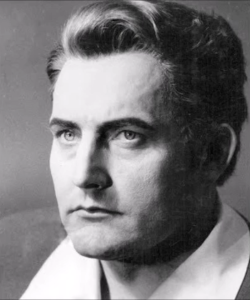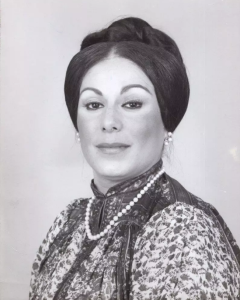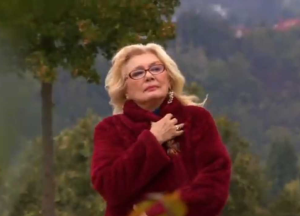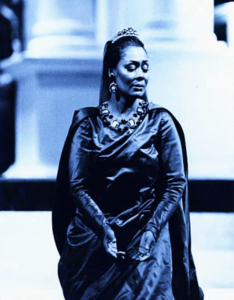Podcast: Play in new window | Download (Duration: 1:47:53 — 148.2MB) | Embed
Subscribe: Spotify | TuneIn | RSS | More
Podcast (https-countermelody-blubrry-net-feed-podcast): Play in new window | Download (Duration: 1:47:53 — 148.2MB) | Embed
Subscribe: RSS
Every hundred or so episodes, I feel compelled to pay a return visit to beloved Hungarian diva Sylvia Sass, for there’s always something new and delicious to discover! I’ve cleaned up another former bonus episode and expanded it with a half-dozen extra tracks, from Verdi to Mozart, from her definitive Bluebeard’s Castle to arie antiche topped with a bracing blast of verismo. Then I link up with the previously published bonus episode which samples live excerpts from the two legendary 1976 Verdi performances (Giselda and Violetta) that put Sass on the fast track to operatic superstardom, then pivot to selections from stage works by Offenbach, Respighi, and Gounod that generously flout all of Sylvia’s musical and vocal virtues. Especially treasurable are a number of performances of art song by Liszt, Schumann, Schubert, Strauss, Wagner, and Kodály that explore more deeply her career-long commitment to art song. Plus that, three pop selections recorded between 1983 and 2004, simply irresistible to me and (I hope) to you as well! Sass lovers, you’re in for a feast!
Countermelody is a podcast devoted to the glory and the power of the human voice raised in song. Singer and vocal aficionado Daniel Gundlach explores great singers of the past and present focusing in particular on those who are less well-remembered today than they should be. Daniel’s lifetime in music as a professional countertenor, pianist, vocal coach, voice teacher, and author yields an exciting array of anecdotes, impressions, and “inside stories.” At Countermelody’s core is the celebration of great singers of all stripes, their instruments, and the connection they make to the words they sing. By clicking on the following link (https://linktr.ee/CountermelodyPodcast) you can find the dedicated Countermelody website which contains additional content including artist photos and episode setlists. The link will also take you to Countermelody’s Patreon page, where you can pledge your monthly or yearly support at whatever level you can afford.












